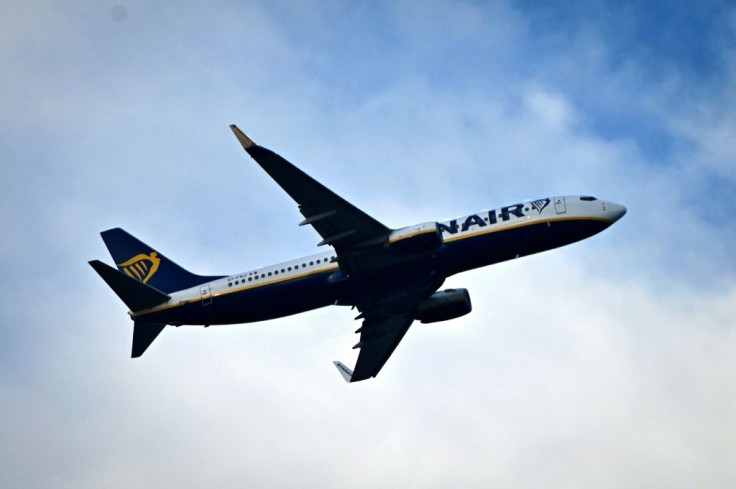Ryanair Forecasts $1 Billion Net Profit For Fiscal 2020, Including Fuel Hedging Charge

KEY POINTS
- In March Ryanair’s traffic plunged by 48% to 5.7 million passengers
- The carrier expects its fleet to be grounded at least through the end of May
- Ryanair is currently operating less than 20 daily flights
Irish-based budget airline Ryanair said it expects to report an after-tax profit between €950 million ($1.025 billion) and €1 billion ($1.08 billion) for the fiscal year ended Mar. 31.
In fiscal 2019, Ryanair posted a similar profit of €1.02 billion ($1.1 billion)
Results in 2020 for the low-cost carrier will fall at the lower range of prior guidance issued in January to account for the effects of the coronavirus epidemic that has led the airline to ground most of its fleet.
In March (the final month of the fiscal year), Ryanair’s traffic plunged by 48% to 5.7 million passengers – down from 10.9 million passengers in March 2019 -- due to extensive flight bans and travel restrictions across Europe.
For the full fiscal year, however, traffic rose by 4% to 149 million passengers – although that figure fell short of the 154 million passengers the airline had hoped for.
For now, the carrier expects its fleet to be grounded at least through the end of May.
Ryanair also estimated it will take an exceptional charge of about €300 million ($324 million) due to the ineffectiveness of its fuel hedging practices for this year, given that oil prices have cratered to as low as $20 per barrel (The net profit estimate includes this charge).
Ryanair, Europe’s largest low-cost carrier, is currently operating less than 20 daily flights -- a 99% plunge from its pre-coronavirus schedule of more than 2,500 daily flights.
Ryanair has also enacted various cost-cutting measures to deal with the expected loss of revenue. “These include aircraft groundings, deferring [capital expenditures], suspending share buybacks, freezing recruitment and discretionary spending, cutting all pay (including senior management) by 50% with immediate effect for April and May,” the carrier said. “We are engaging with our people and our unions across all EU countries to agree [to] payroll support mechanisms as they are put in place by EU governments.”
Ryanair further noted that it is “grateful to many EU governments for their foresight and speed of response in recognizing that the EU airlines are one of the most exposed industries to the COVID-19 pandemic.”
But Ryanair warned that large bailouts of airlines by some European governments might disrupt competition. It added that it supports “the EU Commission’s position that any such government [financial] supports must comply with all EU state aid and competition rules.”
Due to the continuing uncertainties of the current crisis, Ryanair added that it could not provide earnings guidance for the coming financial year.
Ryanair “will continue to focus on delivering cost savings, protecting jobs, working with EU governments to support rescue and medical flights, and preparing for the return to normal service when the COVID-19 crisis has passed,” it said.
The company will release its full year results on May 18.
While many airlines in the U.K. and Europe have asked for – or are in talks for – government bailouts, Ryanair’s chief executive Michael O'Leary claimed his carrier could survive on its cash without any flights or revenue for up to a year.
“The priority here for us as a company is how do we preserve as much cash so that if we have to operate for three, six, nine, maybe even 12 months, with no flights and no revenues how do we survive that, do we have the cash to survive that and we believe we do,” O’Leary told Financial Times.
On Friday, Ryanair said it has one “of the strongest balance sheets in the industry,” with year-end cash equivalents of €3.8 billion [$4.1 billion] and that 327, or 77%, of its owned fleet is unencumbered and debt free.
© Copyright IBTimes 2025. All rights reserved.





















